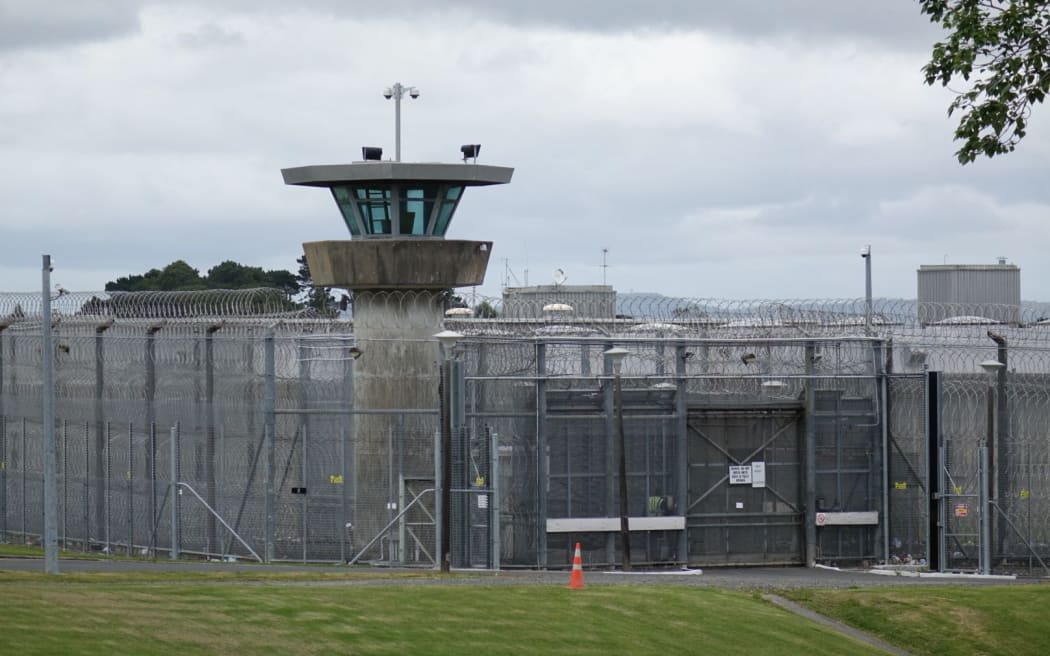Two Hawke's Bay iwi entities are backing a retired probation officer's urgent claim in the Waitangi Tribunal alleging the Crown has failed to cut the high number of Māori in prison and their reoffending.

Auckland Prison at Paremoremo. Photo: RNZ / Kim Baker Wilson
Tom Hemopo's claim is being supported by Ngāti Kahungunu (Iwi Incorporated) and Ngāti Pāhauwera Development Trust.
They say the Crown has done little to address the high rate of reoffending and numbers of tāngata whenua in prison.
Statistics New Zealand figures show the percentage of Māori convicted of offences was at its worst in 2014; for the first time since 1980, Māori made up a greater percentage of all convictions than Europeans, with 38.7 percent Māori compared to 38.3 percent European.
Mr Hemopo, who worked as a probation officer for 25 years before retiring in 2011, said the Department of Corrections had failed to find solutions with Māori and improve the dire statistics.
He said the department was responsible for actively discriminating against them.
"Clients have told me that the lawyers have said 'you'll only get a fine or maybe you'll get community work' - some absolutely weren't getting a fair go. I think it was just for expediency. I retired in 2011 and that used to happen on a weekly basis."
Mr Hemopo said Māori in prison needed to be able to reconnect with the Māori world and while that happened to some extent, the system fell down when they got out.
"I know that tikanga Māori works because over the years I've worked with many Māori offenders and once they realised who they were, where they came, from the penny dropped, and the reoffending stopped."
Ngāti Kahungunu Iwi chair Ngahiwi Tomoana said Māori wanted to reverse the snowballing negative prison statistics.
Corrections' current policies did not recognise Māori rehabilitation processes and there was no trust in engaging with a Māori approach to finding solutions in the justice system, he said.
Mr Tomoana warned bringing in managers from overseas, who had no understanding of the Treaty of Waitangi or tikanga, was harming Māori.
"There are practices that managers are bringing from overseas - not just Serco - that have no understanding of Māori thinking or the Treaty of Waitangi or any of the processes we can use to turn it around (such as tikanga Māori).
"The aim of the claim is to arrest the juggernaut of the current Corrections which is clearly anti-Māori. Māori are six times more likely to be charged and convicted than non-Māori and then more likely to be in prison longer for the same crime as non-Māori so there's something inherently wrong and it must be inherently racist."
Ngāti Pāhauwera Development Trust chair Toro Waaka said the current justice system perpetuated a stereotype that Māori were inherently criminal.
"They should engage with us so that we design the solutions, rather than have these solutions imposed on us, or the solutions that don't work. They've had the same system for years, locking people up, training them up for jobs that don't exist, just putting them back into situations they were in, rather than bringing them out as people that can be productive.
But Corrections Acting Director Maori Barney Tihema said in a statement that reducing reoffending by Māori offenders is a high priority for the department.
"To reduce re-offending by 25 per cent for all offenders by 2017, the Department of Corrections must succeed with Māori, who make up a disproportionate amount of offenders serving sentences.
"A range of initiatives are developed each year under the umbrella of the Creating Lasting Change strategy which are effective for Māori offenders. The strategy also includes some Māori-specific initiatives reflecting the uniqueness of the Māori worldview and offender demographics each year."


